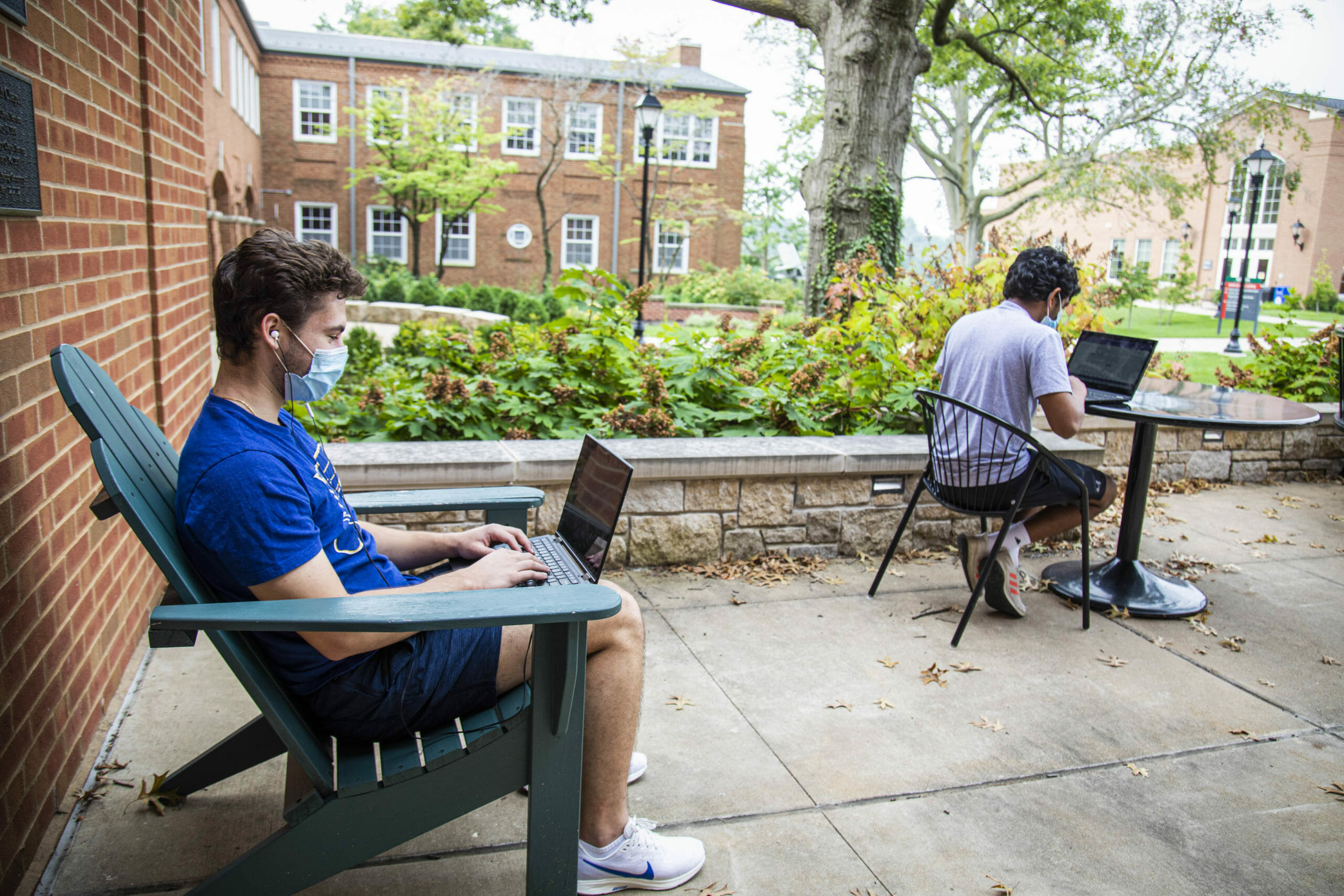Upper School students continued their series of roundtable discussions last week. The purpose of these discussions is to promote conversations that help build a positive community as we address race, racism, and anti-racism, and they help us to continue building a foundation for discussions on difficult and challenging topics.
Each 40-minute session focuses on making social-emotional learning connections through self-awareness, self-management, social awareness, and relationship skills. Advisors have access to a variety of resources to help them lead and manage conversations. It’s important to remember that our community is growing together since advisors may not have the answers to every question and are learning right alongside their students. Their goal is to provide a space where students feel comfortable sharing and learning. They immediately set the tone of the session as empathy, which is key to engaging in challenging conversations on difficult topics such as anti-racism, politics, and COVID-19. (See below for helpful tips on conducting conversations with empathy today.) Advisors can also use a variety of technology applications that allow students to express themselves non-verbally prior to engaging in conversations.
Advisories kicked off this second round by revisiting the conversation rules and norms they established together in the first session. Students completed a survey after that first discussion, and advisors used the results from those surveys to design Round 2.
The first discussion topic was race and anti-racism, as indicated by a majority of students through their survey. Starting with facts and knowledge about the term “race” was helpful to get everyone aligned and provided a shared knowledge base from which to work. They then delved into the definition of race, both from Webster’s English Dictionary and from the American Association of Physical Anthropologists. Students pondered how they would define “race” in regards to classifying people, and learned that humans share the vast majority of our DNA (99.9%) in common.
Considering the responses from the survey students recently completed, it is evident that these conversations are difficult for people to lean into, especially with all that is currently going on in our world. Students are encouraged to remember that they are not the only ones who are uncomfortable having these conversations. Many people, including adults, struggle. Even though these conversations have been taking place for years, there is still a significant level of “uncomfortability.” Students also explored why it is so uncomfortable to talk about race, and why empathy is so important.
At the end, advisors acknowledged that having these conversations is difficult and they asked students to please continue to be patient with this process and to lean into the discomfort. Our entire community benefits from this process and these conversations.
Looking for more empathy in your conversations today?
Explore these questions and think about how you would answer them.
- What is empathy? What does it look like to you?
- Describe a time when you experienced something negative, and as you tried to explain your experience or feelings, people did not believe you and/or respect your struggle.
- When was a time you were empathetic towards another person? How did that make you feel? How did it make the individual feel?
- When was someone empathetic towards you? How did that make you feel?
Is empathy a vital characteristic for relationships? Explain. - Do you think empathy is important when talking about race? Why/why not?
